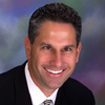
 By Lee J. Colan
By Lee J. Colan
March 8, 2012
Creating accountability is one of the most common challenges for leaders of organizations, teams, communities and families. Whether you lead many or you lead only you, being accountable for your results separates the best from the rest.
Accountability is something every leader wants more of from his or her team, so we talk about it a lot. Accountability is like rain – everyone knows it’s good go for you but nobody wants to get wet. It’s easy to talk about in the third person (“They need to be more accountable”), but it gets uncomfortable to mention in the first person. When is the last time you heard someone say, “I really need to be more accountable for my results”?
Accountability, at its core, is really about specificity – specific language, specific expectations and specific consequences.
Specific Language
The power of our actions is preceded by the power of our words. Speaking with specificity creates a sense of accountability and commitment. We can build accountability for others (and ourselves) by using these simple yet specific phrases:
-
Yes, I will.
-
I am not sure but I will give you a firm answer by noon tomorrow.
-
I will own this.
-
I will make the time get this done.
-
I promise to close the loop by noon tomorrow so we can proceed.
-
By Friday, March 18 at 2:00 pm Central.
-
I will make it happen.
The challenge is to consciously avoid using accountability killers. These words sap energy and commitment from our interactions, and ultimately, our actions. We need to eliminate these accountability killers from our vocabulary:
-
We’ll see
-
I’ll try
-
If I have the time for this
-
I will get back to you on that
-
Maybe
-
I’ll do my best
-
When I get around to it
My favorite line from all six Star Wars episodes is from Yoda, the Jedi Master (yes, I’ve seen them all-¦ many times!). Yoda said, “Do or do not. There is no try.” If this little, green 900 year old Jedi Master can speak the language of accountability, so can we. Specific language leads to specific expectations.
Specific Expectations
Blurry expectations lead to blurry places, so we must clearly and specifically define the actions, timing and results we expect from others and ourselves. We should be able to easily agree to the answer to this question: “How will I know if I have meet expectations?” The imperfect nature of human communication requires us to be more specific than we think we need to be. When we start relying on other’s perceptions of our own expectations, we slide down the dark side of the accountability slope. Use this simple tool - the 3W (What, Who and When) form – to capture and track accountabilities from meetings and conversations.

Using this form helps bring focus to discussions and meetings. Additionally, the mere act of writing down commitments builds personal accountability.
Specific Consequences
This is the Achilles Heel of accountability. The key here is to focus on the big picture. In other words, communicate to your team members the implications of their performance on the team, the organization, the customer, the shareholders and the community. Help your team understand the specific impact of their performance on your customers’ business, your company’s results, your team’s credibility, their promotional opportunities and financial rewards. When they see how they can help or hinder each of these areas, then personal consequences of their performance become self-evident. Their external performance is ultimately a reflection of their internal commitment. What opportunities do you have to be more specific and boost your team’s accountability?
“It is not only what we do, but also what we do not do, for which we are accountable.” – Moliere
Lee J. Colan is a leadership advisor, training and author of 10 rapid-read books. Learn more at www.theLgroup.com.








